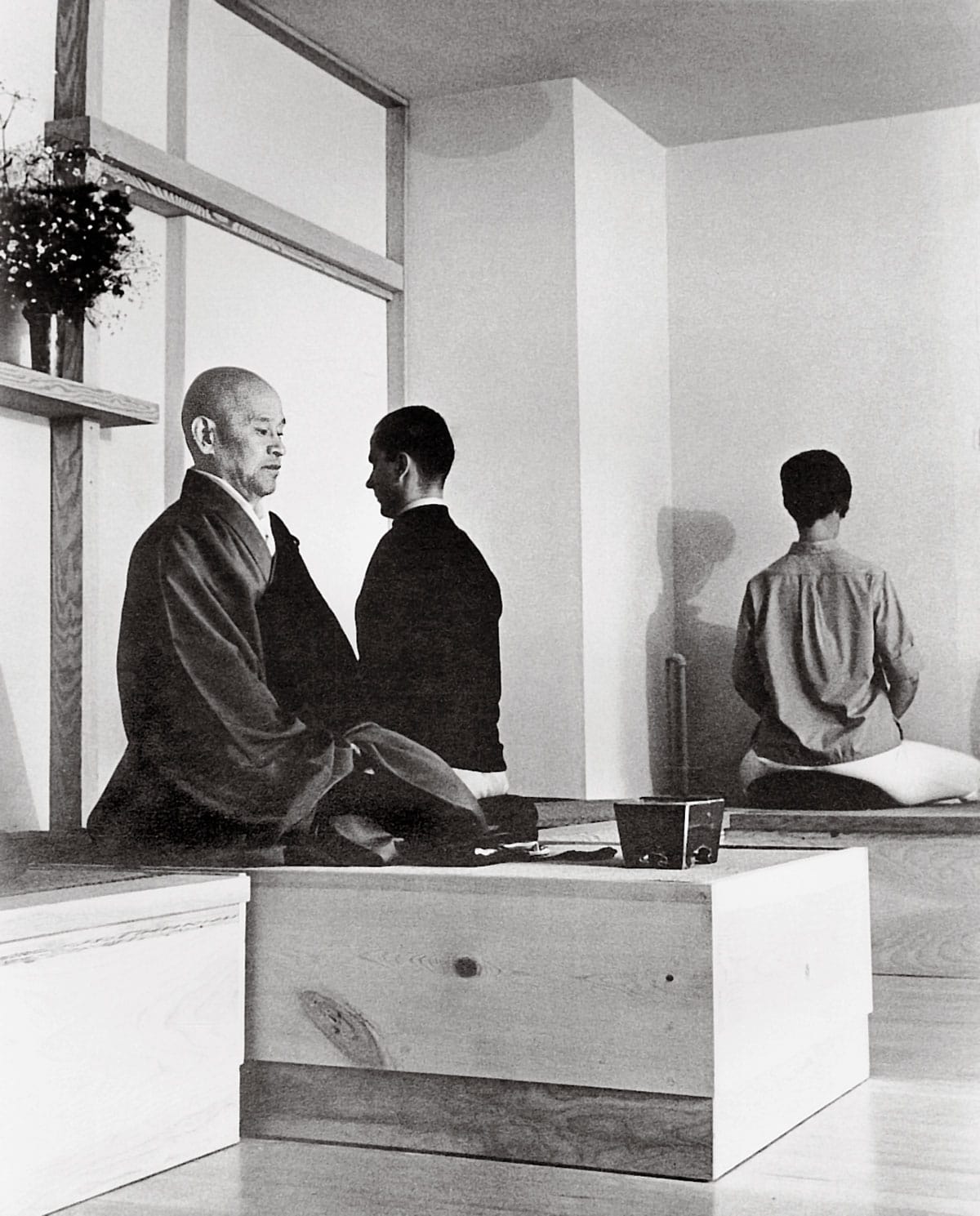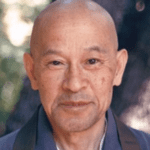When you are practicing Zazen, do not try to stop your thinking. Let it stop by itself. If something comes into your mind, let it come in, and let it go out. It will not stay long. When you try to stop your thinking, it means you are bothered by it. Do not be bothered by anything. It appears as if something comes from outside your mind, but actually it is only the waves of your mind, and if you are not bothered by the waves, gradually they will become calmer and calmer. In five or at most ten minutes, your mind will be completely serene and calm. At that time your breathing will become quite slow, while your pulse will become a little faster.
It will take quite a long time before you find your calm, serene mind in your practice. Many sensations come, many thoughts or images arise, but they are just waves of your own mind. Nothing comes from outside your mind. Usually we think of our mind as receiving impressions and experiences from outside, but that is not a true understanding of our mind. The true understanding is that the mind includes everything; when you think something comes from outside it means only that something appears in your mind. Nothing outside yourself can cause any trouble. You yourself make the waves in your mind. If you leave your mind as it is, it will become calm. This mind is called big mind.
It will take quite a long time before you find your calm, serene mind in your practice. Many sensations come, many thoughts or images arise, but they are just waves of your own mind.
If your mind is related to something outside itself, that mind is a small mind, a limited mind. If your mind is not related to anything else, then there is no dualistic understanding in the activity of your mind. You understand activity as just waves of your mind. Big mind experiences everything within itself. Do you understand the difference between the two minds: the mind which includes everything, and the mind which is related to something? Actually they are the same thing, but the understanding is different, and your attitude towards your life will be different according to which understanding you have.
That everything is included within your mind is the essence of mind. To experience this is to have religious feeling. Even though waves arise, the essence of your mind is pure; it is just like clear water with a few waves. Actually water always has waves. Waves are the practice of the water. To speak of waves apart from water or water apart from waves is a delusion. Water and waves are one. Big mind and small mind are one. When you understand your mind in this way, you have some security in your feeling. As your mind does not expect anything from outside, it is always filled. A mind with waves in it is not a disturbed mind, but actually an amplified one. Whatever you experience is an expression of big mind.
The activity of big mind is to amplify itself through various experiences. In one sense our experiences coming one by one are always fresh and new, but in another sense they are nothing but a continuous or repeated unfolding of the one big mind. For instance, if you have something good for breakfast, you will say, “This is good.” “Good” is supplied as something experienced some time long ago, even though you may not remember when. With big mind we accept each of our experiences as if recognizing the face we see in a mirror as our own. For us there is no fear of losing this mind. There is nowhere to come or to go; there is no fear of death, no suffering from old age or sickness. Because we enjoy all aspects of life as an unfolding of big mind, we do not care for any excessive joy. So we have imperturbable composure, and it is with this imperturbable composure of big mind that we practice zazen.
From Zen Mind, Beginner’s Mind, by Shunryu Suzuki. Protected under the International Copyright Union. Posted by arrangement with Shambhala Publications.

